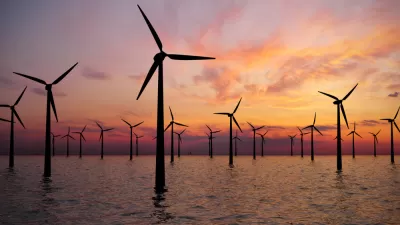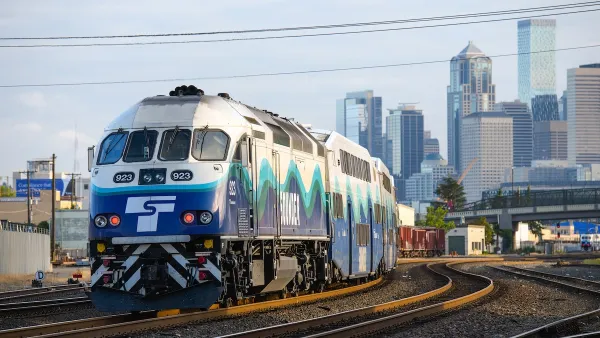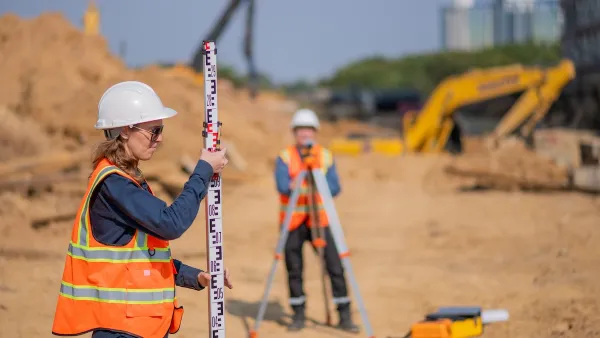A new Harvard Business School report lays the economic and equity case for fracking—through direct and indirect job creation, America's middle class is reaping substantial wage gains and reduced energy costs. Renewables are also discussed.
NPR correspondent Chris Arnold doesn't begin the interview by discussing fracking with the report's author, Harvard economist Michael Porter, but with the state of the American economy today. [Listen here or download].
There's a serious problem in the American economy: Big corporations are doing well, but real household income for average Americans has been falling over the past decade — down 9 percent, according to census data ["Income and Poverty in the United States: 2013 Current Population Reports" (PDF)].
Porter believes that fracking is part of the solution to increasing household income, and to ignore it would be a grave error.
"It is a game changer," Porter says. "We have estimated that already, this is generating a substantial part of our GDP in America..."
Looking not just at drilling jobs but at all related jobs — truck drivers, truck manufacturers, petrochemical engineers and more — Porter says the rise of fracking has added 2.7 million jobs to the economy, most of them with good wages.
From the report:
America’s unconventional gas and oil resources are a once-in-a-generation opportunity to enhance the nation’s economic competitiveness while minimizing environmental impacts, and making major progress toward reduced greenhouse-gas emissions. But there is a real risk that American citizens, companies, and communities will fail to capitalize on this opportunity because of misunderstanding and distrust.
Fracking also benefits all consumers by reducing energy prices, claims Porter. "The average household is saving about $800 a year," he says, much of it in passed-on savings from lower-priced consumer products, writes Arnold. "And his research suggests that figure may keep rising in the next 15 years."
Porter concedes energy companies are partially responsible for the American people's distrust of fracking "by failing to partner with environmentalists at the start to reduce fracking's impact," adds Arnold.
Wind energy developments are also explored in the article. Porter adds a caveat: "Many people believe that somehow, if we take advantage of these oil and gas resources, that will stop renewables in their tracks," he says. "That turns out to be just wrong."
FULL STORY: America's Next Economic Boom Could Be Lying Underground

Planetizen Federal Action Tracker
A weekly monitor of how Trump’s orders and actions are impacting planners and planning in America.

Maui's Vacation Rental Debate Turns Ugly
Verbal attacks, misinformation campaigns and fistfights plague a high-stakes debate to convert thousands of vacation rentals into long-term housing.

San Francisco Suspends Traffic Calming Amidst Record Deaths
Citing “a challenging fiscal landscape,” the city will cease the program on the heels of 42 traffic deaths, including 24 pedestrians.

Amtrak Rolls Out New Orleans to Alabama “Mardi Gras” Train
The new service will operate morning and evening departures between Mobile and New Orleans.

The Subversive Car-Free Guide to Trump's Great American Road Trip
Car-free ways to access Chicagoland’s best tourist attractions.

San Antonio and Austin are Fusing Into one Massive Megaregion
The region spanning the two central Texas cities is growing fast, posing challenges for local infrastructure and water supplies.
Urban Design for Planners 1: Software Tools
This six-course series explores essential urban design concepts using open source software and equips planners with the tools they need to participate fully in the urban design process.
Planning for Universal Design
Learn the tools for implementing Universal Design in planning regulations.
Heyer Gruel & Associates PA
JM Goldson LLC
Custer County Colorado
City of Camden Redevelopment Agency
City of Astoria
Transportation Research & Education Center (TREC) at Portland State University
Jefferson Parish Government
Camden Redevelopment Agency
City of Claremont





























